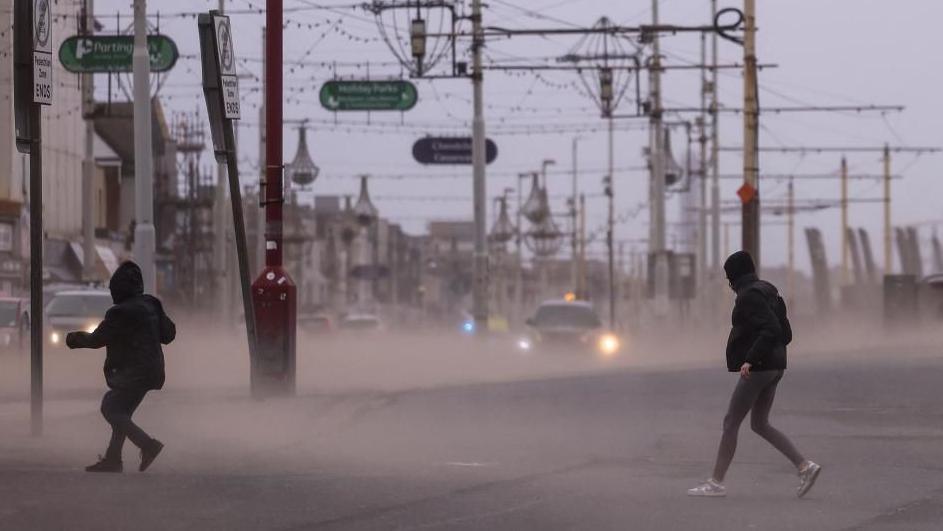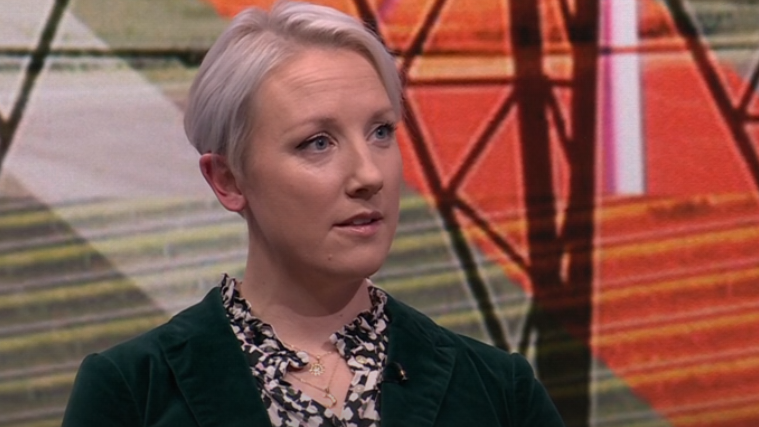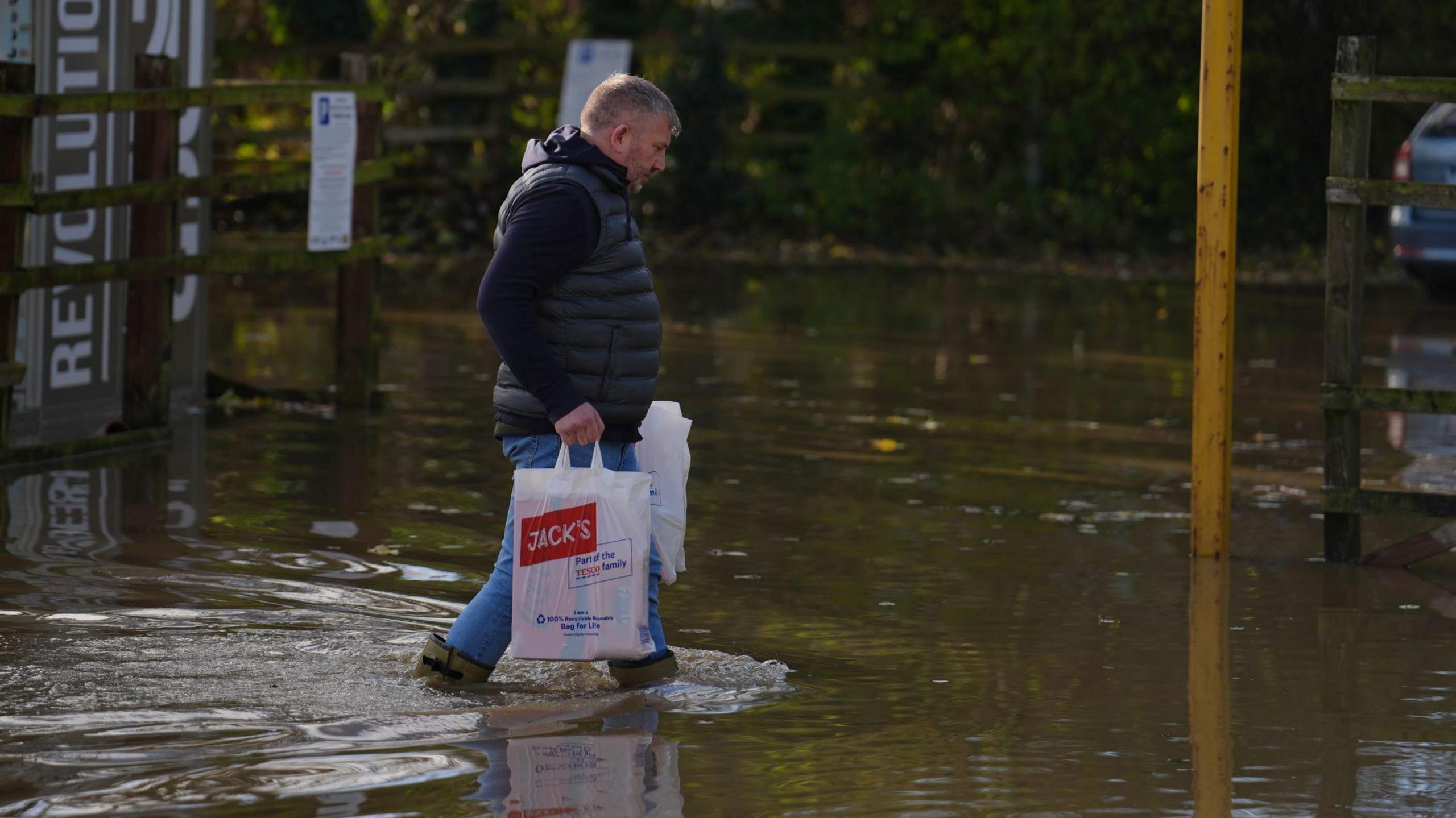UK 'not ready' for extreme weather like Storm Darragh

People struggle through Storm Darragh in Blackpool
- Published
The government is "not ready" for the sort of extreme weather brought by Storm Darragh, the new head of the Climate Change Committee has warned.
Emma Pinchbeck, who heads the government's independent climate advisory body, told the BBC's Sunday with Laura Kuenssberg that the UK is "off track" and must do more to prepare for scenarios like flooding and intense heat.
Storm Darragh brought 96mph gusts on Saturday, with two men dying during the storm and thousands being left without power. It was the fourth serious storm to hit the UK since mid-October.
The UK government has committed to reaching net zero carbon emissions by 2050, as scientists warn the rate of extreme weather events will increase as the climate warms.
However, Pinchbeck said adaptations to homes and communities were needed immediately "regardless of what you think we should do in terms of reducing emissions".
In her first televised interview since taking up the post of chief executive at the Climate Change Committee, she said: "We're off track against where we should be - and that's things like flood defences, or are our houses built on flood plains?
"In the summer are our cities ready for extreme heat? These basic things."
Pinchbeck said the UK must plan for more extreme weather events like Saturday's storm, adding: "We have to prepare our infrastructure for it.
"We have to prepare the economy for it. We have to prepare our homes for it."
The government's own climate risk assessment, published in 2022, warned the impacts of a changing environment could cost the UK billions of pounds a year.

Emma Pinchbeck became head of the Climate Change Committee in October
It said that efforts must be undertaken to prepare for the effects of 4C of warming, regardless of international agreements with targets to limit warming to 1.5C.
Pinchbeck continued: "There are risks to our food yields, there are risks to where we can build safe homes for people, and risks to our towns and cities which are built on coastlines.
"These things are very obvious and we should be acting now to tackle them."
Pressed on whether enough is being done to prepare for an increased rate of extreme weather events, Deputy Prime Minister Angela Rayner told the BBC the government has already put more money into flood defences.
She also said environmental factors will be taken into consideration as ministers press ahead with plans to build 1.5m new homes across the UK over the next five years.
BBC News has asked the government to respond to Pinchbeck's remarks.
Related topics
- Published1 December 2024
